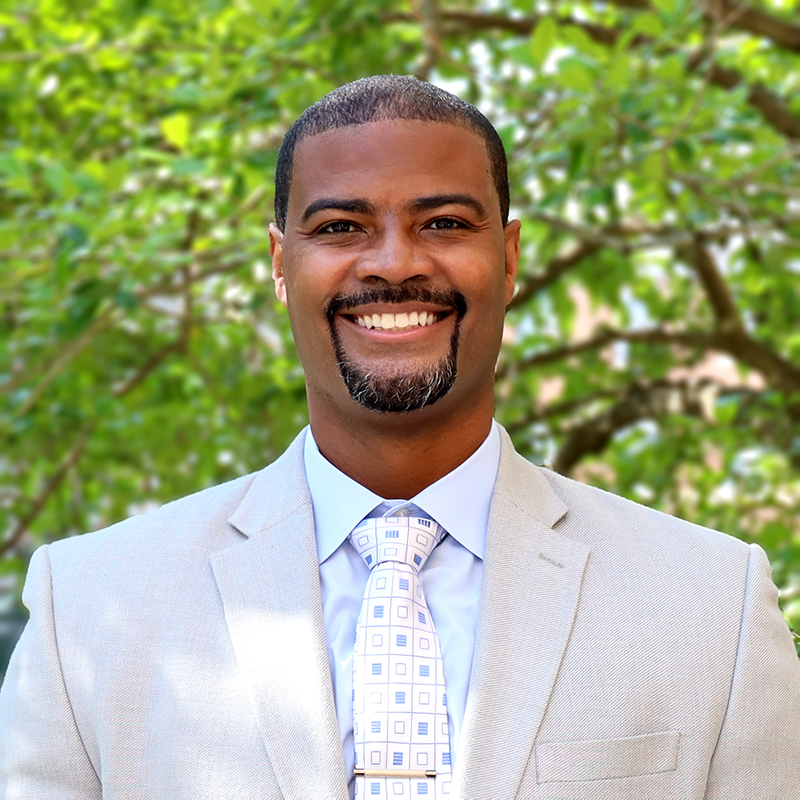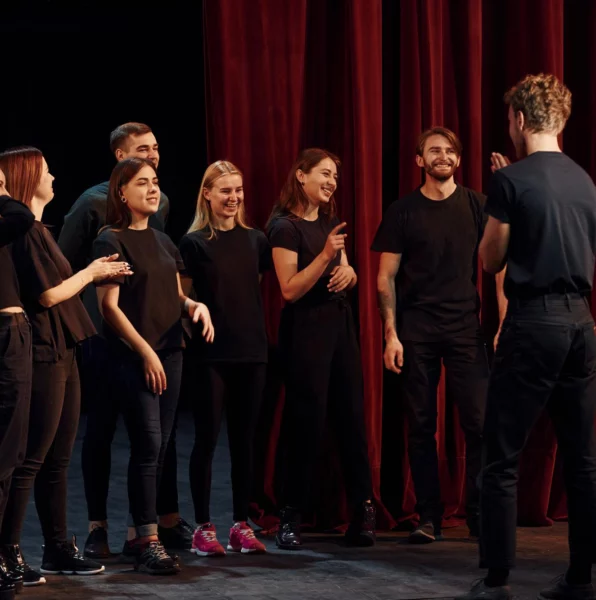In a world where scientific progress is often seen as the pinnacle of human achievement, it’s easy to overlook the darker side of the narrative. From climate change denial to the promotion of harmful products – what happens when corporations hijack the credibility of science for their own gain?
How corporations exploit the ‘brand’ of science
You write about how science communication can be misused to fight science itself – how do big corporations exploit the ‚brand‘ of science?

Because we talk about science, as Burke would say1, in ultimate or god-like terms, it’s hard to challenge scientific findings. If you think back to Galileo and the heliocentric model of the universe: The science of the time said that there was a geocentric model of the universe and he was labeled a heretic. They wanted to kill him because he said that the sun was the center of the universe. The word ‘science’ has so much value, so much credibility, that it’s really hard to criticize. Science has been used throughout history to justify all kinds of atrocities, even genocide.
Because of the stock and the value that we put on science, corporations hire scientists to do their own reports. We have known for years that big oil, particularly in the US, has been challenging and denying climate change and denying climate issues. And so when you have big corporations that have millions to invest in pushing the narrative in their favor, it’s hard for us as a society to challenge that.
You mention the tobacco brand Philip Morris as a case study in corporate science communication. What PR strategies did they use to deny the harmful effects of smoking?
They fought science with ‘science’ to say that smoking was safe. They did this to promote their brand, while using science to dismiss the other studies that were coming out. It was one of the longest sustained misinformation campaigns in history. In the 1950s, the tobacco industry developed a highly sophisticated public relations campaign to undermine the emerging science highlighting the harms of cigarette smoking. The industry used the creation of scientific uncertainty to defeat regulatory and public health initiatives aimed at reducing smoking and its harmful health effects.
How can these firms be held accountable for their role in shaping public opinion and disseminating potentially biased scientific information?
If governments don’t step in and regulate, then it’s difficult. In the US we’re seeing a decline in newspapers. You would have expected investigative journalists to blow the whistle, to hold organizations to account. But with the shrinking of news outlets, that becomes more difficult.
And if governments don’t step in and we don’t have the news organizations as watchdogs, then I think it falls to the scientific community to take up the mantle. To hold these organizations to account, through social media campaigns, calling them out for their questionable practices. It’s up to individuals more than established entities like the media or the government. It’s a lot to take on, but we have to do it.
We need to ring the alarm. Otherwise this issue is falling under the radar. Sadly, when oil corporations such as Exxon begin engaging in corporate science communication for societal benefit, it is only after losing battles in court or public opinion.
What can lay people do to distinguish between accurate science communication and commercial interests?
We all need to ask the questions: Who is sending the message? Who is the message for? What do they stand to gain from sending the message? This requires us to do a bit of digging. For example, if we find that the government is pushing a message, but we find that a corporation is backing that particular message, we should ask: What’s the motivation for passing that law?
For example, in the state of Texas, more than a decade ago, Governor Rick Perry wanted all children aged 11 or 12 to receive the HPV vaccine Gardasil because of concerns about the risk of cervical cancer. The governor said the mandate was in the interest of public health. However, it was later revealed that Merck, the pharmaceutical company that makes the vaccine, had been a major donor to the governor’s campaign.
Maybe the mandate was in the public interest, but we can see from the backlash and reticence that it created a lot of skepticisim. I think it is up to us, the lay public, to ask these critical questions, and with the power of social media we can raise awareness of these kinds of conflicts of interest.
A 2020 meta-analysis by Schäfer and Fähnrich2 showed that the field of corporate science communication is still severely under-researched. Why do you think this is?
I think it’s because individual disciplines think in individual silos. Many hard sciences almost completely ignore the role of corporations and industries in shaping and influencing social discourse. Statisticians, epidemiologists, they don’t think about the corporate context. They discover something and think about how to get people to accept it. At the same time, very few people in the social sciences study how organizations promote or harm the public interest through science communication.
What sparked your own interest in corporate science communication?
I’m an administrator in higher education, so I have a critical perspective on corporations and big pharma, who give a lot of money to universities to sponsor research. How unbiased are these sponsored researchers?
Corporations make interesting bedfellows. There was the case of Tyrone Hayes, a biologist at the University of California, Berkeley, who was initially sponsored by a consulting firm. He found that one company’s pesticide, atrazine, was turning genetically male frogs into genetically female frogs. This chemical is now banned in many countries, including Germany. But it’s still legal here in the US. The company fought him, attended his lectures, and hecklers in the crowd, paid for by big pharma, tried to discredit him and his science.
We need more Tyrone Hayes‘ in the world to challenge this organizations. Each of us can be a Tyrone Hayes in a way.
Read More
Waymer, D., & Hill, T. E. (2023). Corporate science communication: a compound ideological and mega-ideological discourse. Journal of Communication Management. https://www.emerald.com/insight/content/doi/10.1108/JCOM-08-2023-0089/full/html
- Burke, K. (1969). A grammar of motives (Vol. 177). Univ of California Press. https://www.ucpress.edu/book/9780520015449/a-grammar-of-motives ↩︎







